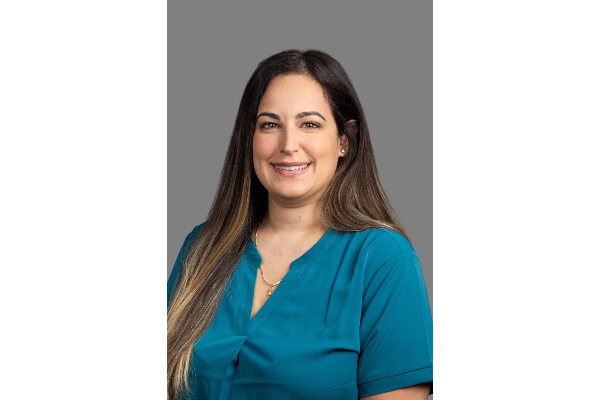
Orgullosamente Latina!
If I close my eyes and open up my senses, I can still smell and feel the texture of my abuela’s pomade on my forehead. Whenever I had a headache, my grandmother took out her tiny unlabeled pomade purchased from the Hispanic grocery store and smear it all over my forehead. “Esto te va quitar todos los dolores,” "this will get rid of all your pains." Growing up in a Latino household, traditional American medical practices weren’t used. I’m not sure just how effective my grandmother’s pomades and herbal teas actually were, but they must have served some purpose, as I still get to enjoy her wisdom (and healing) at 82 years old. As I reflect on Hispanic Heritage Month and what being Hispanic means to me, I can’t help but recall my abuela and the challenges of growing up as an immigrant in the United States.
“Orgullosamente,” proudly, I embraced and grew from the challenges I endured and pursued a path as a PA in order to bring quality health care to the people and community that shaped me into who I am today.
I immigrated to the United States with my mother and father when I was just two years old. My father was a local carpenter and my mother was a physician. Once I started kindergarten in the United States, I noticed that things in school were way different than how I experienced things at home. When I was around six years old, I began to practice my excellent English-to-Spanish translational skills. I’m sure you can imagine just how well a 6-year-old can translate words, but in case you can’t, I’ll share a very funny (and very true) kindergarten experience. We were learning the alphabet in school, and for the letter C, my class decided to do a “cap” day. We were all supposed to bring in a cap from home to take a class picture. When I went home that day, the best translation I could come up with to explain to my mom about “cap day” was “sombrero.” I’m sure you can see where this is going. The next day at school, while everyone else showed up in their baseball caps, I showed up rocking a cowboy hat! Clearly, there was something lost in translation along the way from “cap” to “cowboy hat.” Thankfully, my teachers had an extra cap for me and the day was saved. Perhaps this situation wouldn’t happen in today’s generation as our country is much more conscious of our Hispanic population and tends to offer handouts and paperwork in both English and Spanish. In the 90s, however, inclusivity for people from other countries was less of a priority.
Reflecting back on moments like these, I’m actually thankful for them. As the years went by my parents learned English, though they continued to speak Spanish in the home. This allowed me to perfect my Spanish alongside my English as I grew older, and even now, I’m still very comfortable speaking and writing in Spanish. As I went through school and listened to my mom’s stories of her patients and practicing medicine in Cuba, it that same passion blossomed in me. I went to college, got a nursing degree, and worked as a nurse in the neonatal ICU for five years before switching paths and starting PA school. While working as a nurse in Florida and North Carolina, I always made it my mission to seek out families who were Spanish-speaking only. Being in the hospital is always stressful, and those feelings of unease and fear are heightened when you aren’t able to understand what health care workers are saying to you. The relief on those families’ faces upon hearing, “Hola mi nombre es Anabel y voy a ser su enfermera hoy” brought me immense joy. Even if our traditional medicines and treatments couldn’t provide immediate relief to their ailments, at least they were comforted by the presence of someone who understood them and their cultural beliefs. Once I graduate from PA school, I hope to continue to work with Spanish-speaking communities and help to promote their well-being.
We celebrate Hispanic Heritage month from September 15th to October 15th. The reason for this date is that many countries, including Costa Rica, El Salvador, Chile, Mexico, and Honduras, have the anniversary of their independence around this time. These independence dates remind me of the resiliency of Hispanic people across the globe and how much strength all 62 million of us living in the United States can draw together from our immigrant roots. My struggles as an immigrant allowed me to reach incredible milestones professionally and personally, and I can’t wait to see what we all achieve next!
Anabel Caceres is a first-year student with the Duke Physician Assistant Program. Email anabel.santos@duke.edu with questions.
Editor’s note: Duke Physician Assistant Program students blog monthly. Blogs represent the opinion of the author, not the Duke Physician Assistant Program, the Department of Family Medicine and Community Health, or Duke University.